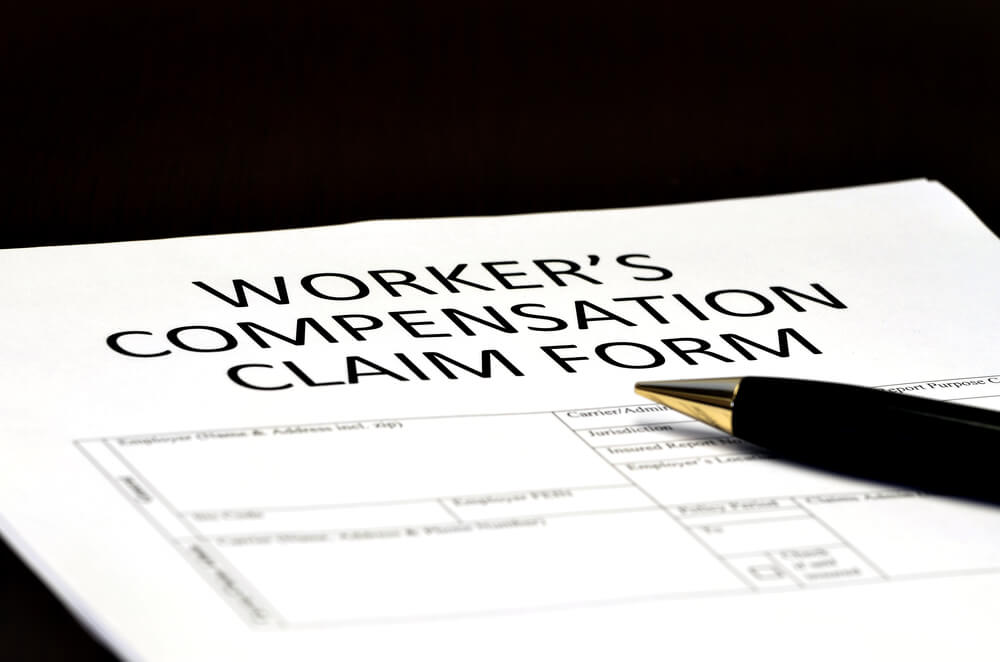Workers’ compensation insurance (often referred to as workers’ comp) is a vital form of coverage for businesses, providing financial protection against workplace injuries and illnesses.
This article will delve into the essentials of purchasing workers’ comp insurance, covering its significance, types, costs, purchasing process, and frequently asked questions.
Understanding Workers’ Compensation Insurance

What is Workers’ Compensation Insurance?
Workers’ compensation insurance is designed to cover medical expenses, rehabilitation costs, and lost wages for employees who suffer job-related injuries or illnesses.
In exchange for this coverage, employees typically relinquish their right to sue their employers for negligence, creating a “no-fault” system that benefits both parties.
Importance of Workers’ Compensation Insurance
Having workers’ comp insurance is not just a legal requirement in most states; it also protects your business from potentially crippling lawsuits.
Injuries in the workplace can lead to significant financial burdens. With workers’ comp insurance, you can ensure that your employees receive the necessary care while minimizing your financial risk.
Types of Workers’ Compensation Insurance
State-Specific Workers’ Compensation Programs
Each state has its own regulations regarding workers’ compensation. Therefore, it’s essential to understand the specific requirements and programs available in your state.
Most states operate their own workers’ comp insurance programs, which may include state-funded options for employers unable to secure private insurance.
Private Workers’ Compensation Insurance
Many businesses opt for private workers’ compensation insurance through commercial insurers.
This type of coverage can be tailored to fit the unique needs of your business, offering flexibility in terms of benefits and premiums. Private insurers may also provide additional services, such as safety training and risk management consultations.
Self-Insurance
For larger businesses with significant resources, self-insurance can be an option. This involves setting aside funds to cover potential claims instead of purchasing insurance.
While self-insurance can offer cost savings, it also comes with risks and regulatory requirements, making it suitable only for financially stable companies.
Evaluating Your Business Needs
Assessing Your Risk Exposure
Before purchasing workers’ comp insurance, evaluate the specific risks associated with your industry and workforce.
High-risk industries, such as construction or manufacturing, may require higher coverage limits compared to lower-risk sectors like retail or office work.
Conducting a thorough risk assessment helps you determine the appropriate level of coverage.
Employee Classification
Correctly classifying your employees is crucial when obtaining workers’ comp insurance.
Different job roles come with varying risk levels, impacting premium calculations. Ensure that you accurately categorize your employees based on their duties to avoid potential coverage gaps or overpaying for insurance.
How to Purchase Workers’ Compensation Insurance
Researching Insurance Providers
Start by researching different insurance providers to find reputable companies that specialize in workers’ compensation insurance.
Look for providers with strong financial ratings, positive customer reviews, and a good track record in handling claims.
Obtaining Quotes
Once you’ve identified potential insurers, request quotes from multiple companies. Provide detailed information about your business, including the number of employees, payroll size, and industry type. This data will help insurers give you accurate estimates.
Comparing Policies
When reviewing quotes, pay attention not only to the premium amounts but also to the coverage limits, deductibles, and any exclusions or endorsements. It’s essential to compare policies comprehensively to find the best fit for your business.
Consulting with an Insurance Broker
If navigating the complexities of workers’ comp insurance feels overwhelming, consider consulting with an insurance broker.
Brokers can offer valuable insights, help you understand different policies, and negotiate on your behalf to secure the best terms.
Finalizing Your Purchase
After selecting an insurer and policy that meets your needs, finalize the purchase by completing the required paperwork and making your initial premium payment.
Ensure you understand the terms of the policy, including reporting procedures for workplace injuries and claims filing processes.
Understanding the Costs of Workers’ Compensation Insurance

Premium Factors
Several factors influence workers’ compensation insurance premiums, including:
- Industry Classification: High-risk industries typically face higher premiums.
- Payroll Size: Premiums are often calculated based on total payroll, with higher payrolls resulting in higher premiums.
- Claims History: A history of frequent or severe claims can lead to increased premiums.
- Safety Record: Companies with robust safety programs may qualify for discounts.
Ways to Reduce Premium Costs
Reducing workers’ comp premiums is possible through several strategies:
- Implementing Safety Programs: Investing in safety training and hazard mitigation can lower the risk of workplace injuries.
- Regularly Reviewing Coverage: Periodically review your policy to ensure it reflects your current workforce and risks.
- Negotiating with Insurers: Don’t hesitate to negotiate terms with your insurer, especially if you have a good claims history.
Claims Process and Management
Reporting an Injury
In the event of a workplace injury, prompt reporting is crucial. Employees should inform their supervisors immediately, who in turn must file a report with the insurance company. Familiarize yourself with the reporting timelines and procedures specific to your insurer.
Claim Investigation
Once a claim is reported, the insurance company will investigate the incident. This may involve gathering statements from witnesses, reviewing medical records, and assessing the circumstances surrounding the injury.
Benefits and Compensation
If a claim is approved, employees may receive benefits that cover medical expenses, rehabilitation costs, and a portion of lost wages.
Understanding the benefits available under your policy can help you support your employees effectively during their recovery.
The Role of Safety Programs in Workers’ Compensation

New Hampshire Home Insurance Quotes
Importance of Workplace Safety
A proactive approach to workplace safety not only protects employees but also reduces insurance costs. Establishing a culture of safety can lead to fewer accidents and injuries, ultimately benefiting your bottom line.
Implementing Safety Training
Regular safety training sessions are essential for educating employees about potential hazards and proper safety protocols. Investing in training can lead to fewer workplace accidents, reducing your insurance premiums and improving employee morale.
Regular Safety Audits
Conducting regular safety audits helps identify potential risks and areas for improvement. Engaging employees in this process fosters a sense of ownership and responsibility for workplace safety.
Final Thoughts on Workers’ Compensation Insurance
Ensuring Compliance and Protection
Purchasing workers’ compensation insurance is a critical step in ensuring your business complies with legal requirements and protects both your employees and your financial interests.
By understanding the nuances of the coverage, assessing your business needs, and following the purchasing process diligently, you can secure the right insurance for your organization.
Read more : Professional Liability Insurance for Consultants
Read more : New Jersey Legal Malpractice Insurance
Read more : Top 10 Home Insurance in USA
Read more : New Hampshire Home Insurance Rates
